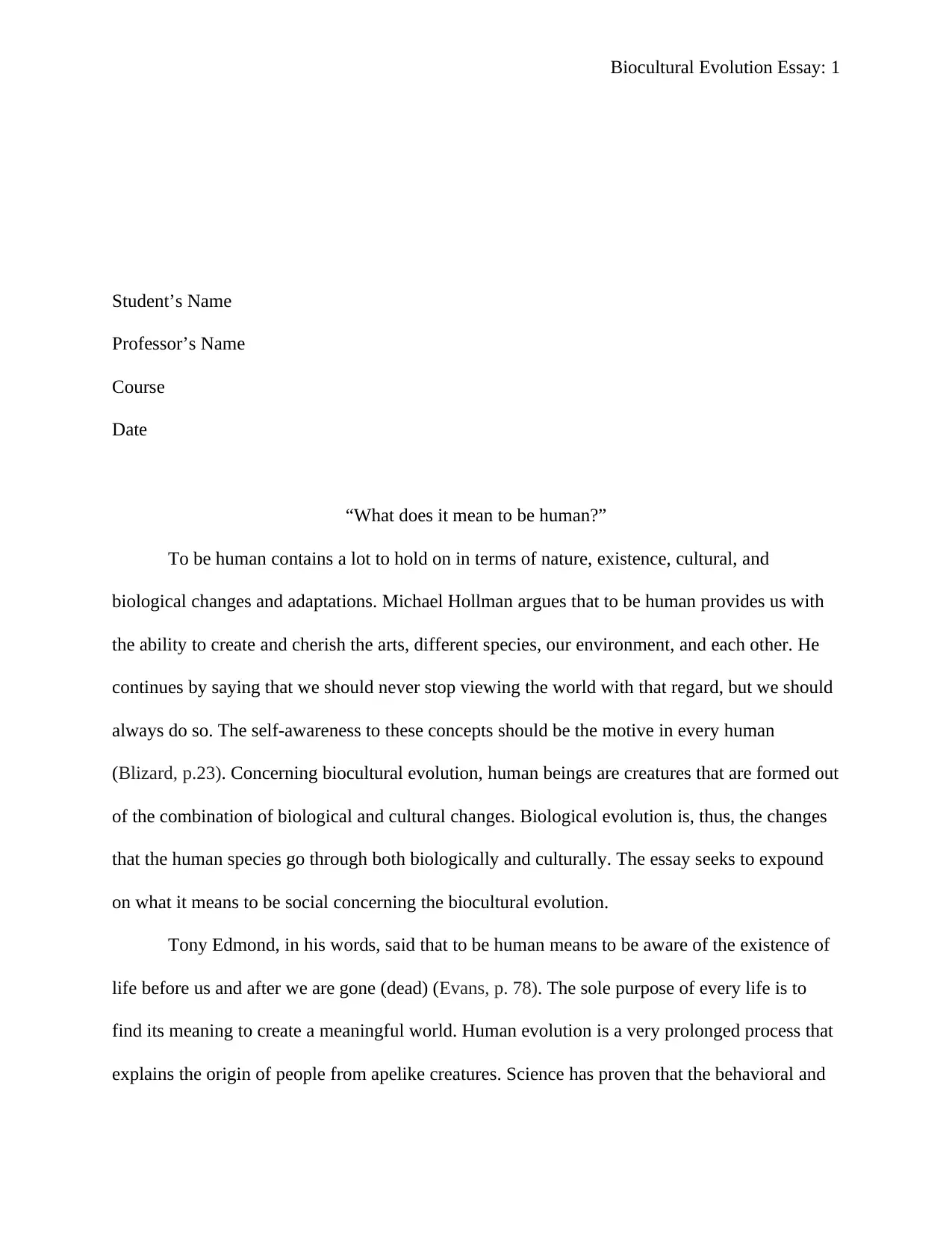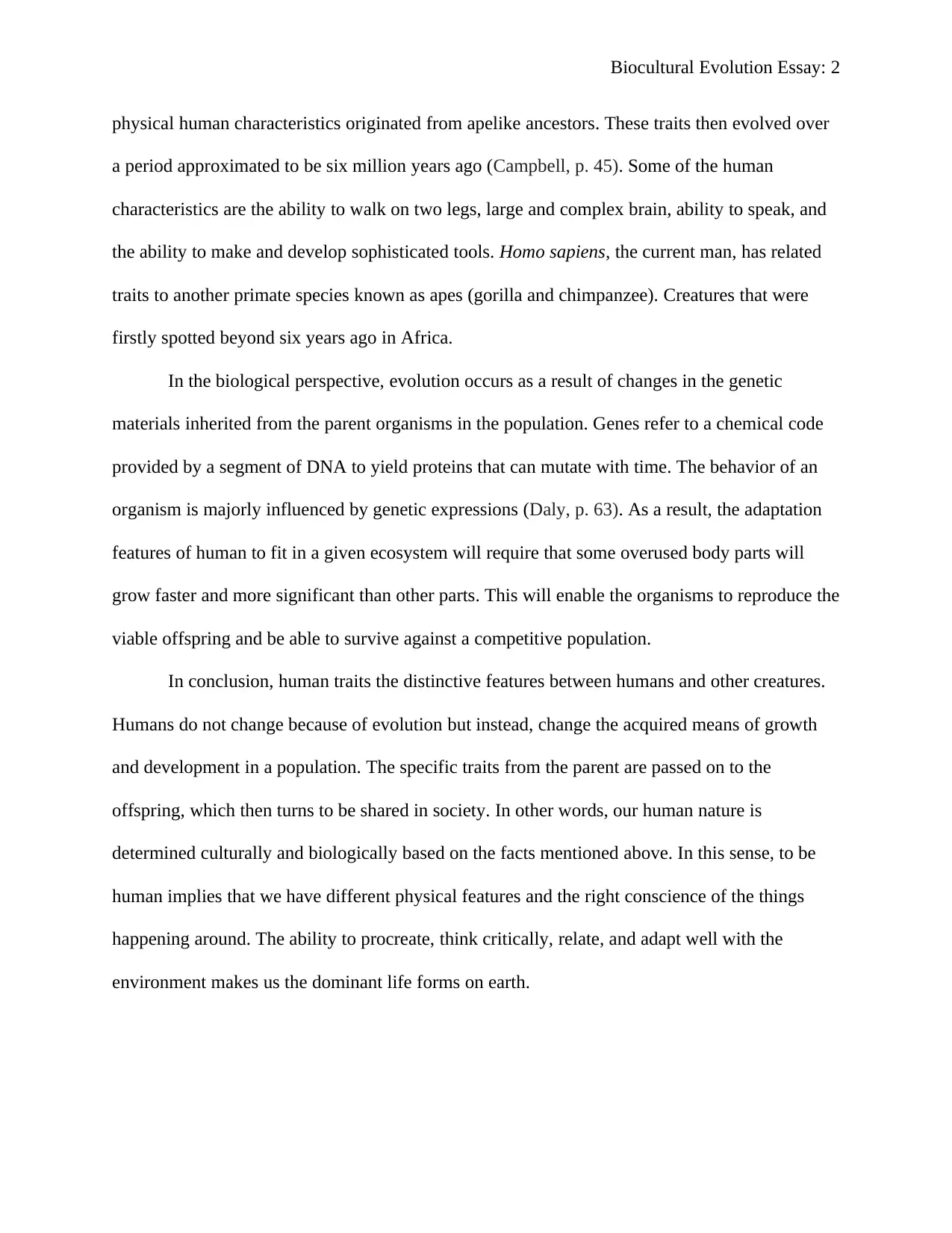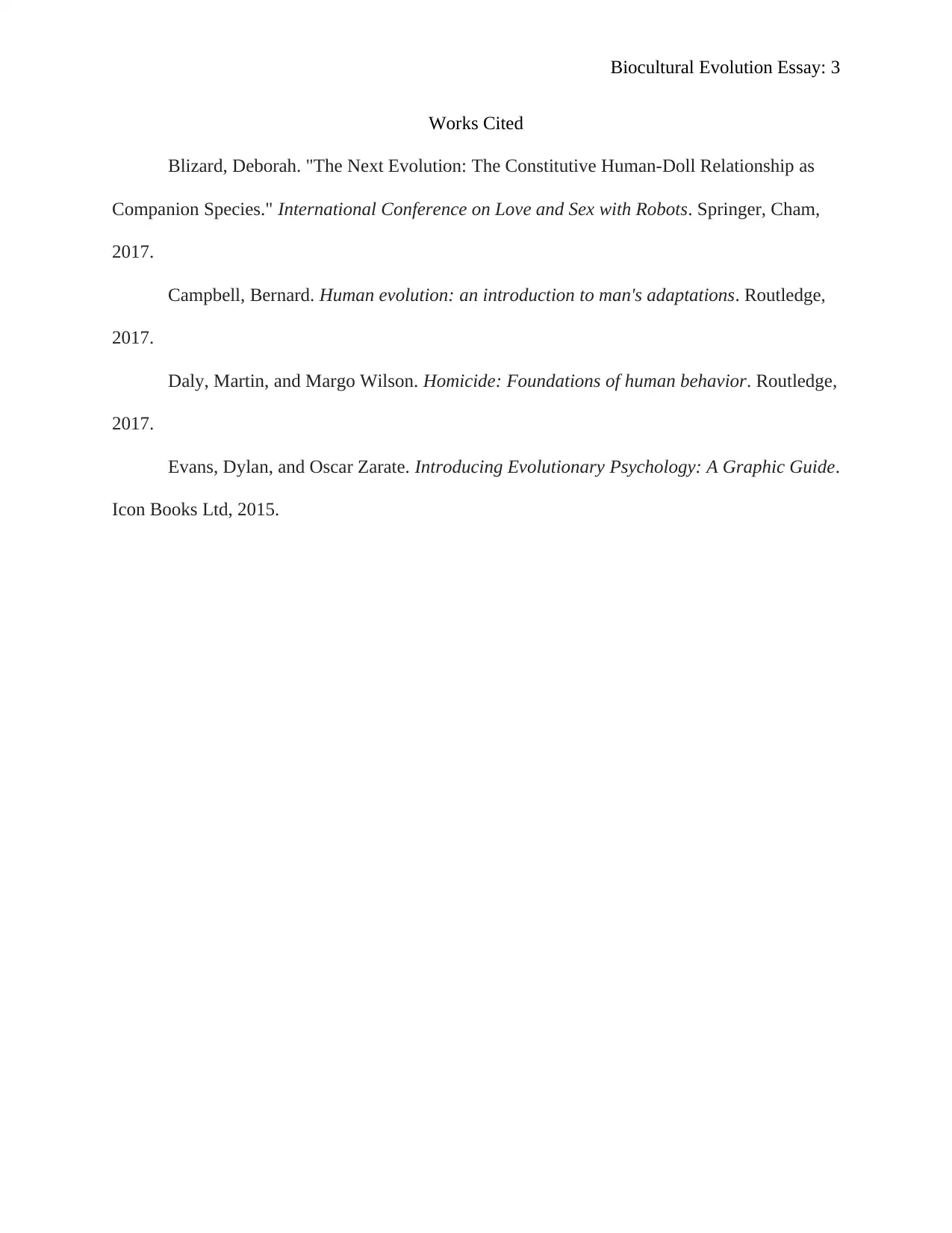Biocultural Evolution Essay: Exploring the Meaning of Human Existence
VerifiedAdded on 2022/11/25
|3
|688
|379
Essay
AI Summary
This essay delves into the concept of biocultural evolution to define what it means to be human. The student's essay examines the interplay of biological and cultural changes that have shaped the human species, drawing on examples from the course materials. It references the works of Michael Hollman, Tony Edmond, and scientific findings regarding human evolution, emphasizing key characteristics like bipedalism, brain development, language, and tool use. The essay defines biocultural evolution, highlighting how human traits are a product of both biological adaptation and cultural development, concluding that human nature is determined by both cultural and biological factors, which determine our physical features and conscience of the things happening around us. The student uses cited examples from the course textbook to support the arguments and explores abilities found in non-humans such as tool use to provide a comprehensive understanding of what it means to be human.
1 out of 3










![[object Object]](/_next/static/media/star-bottom.7253800d.svg)